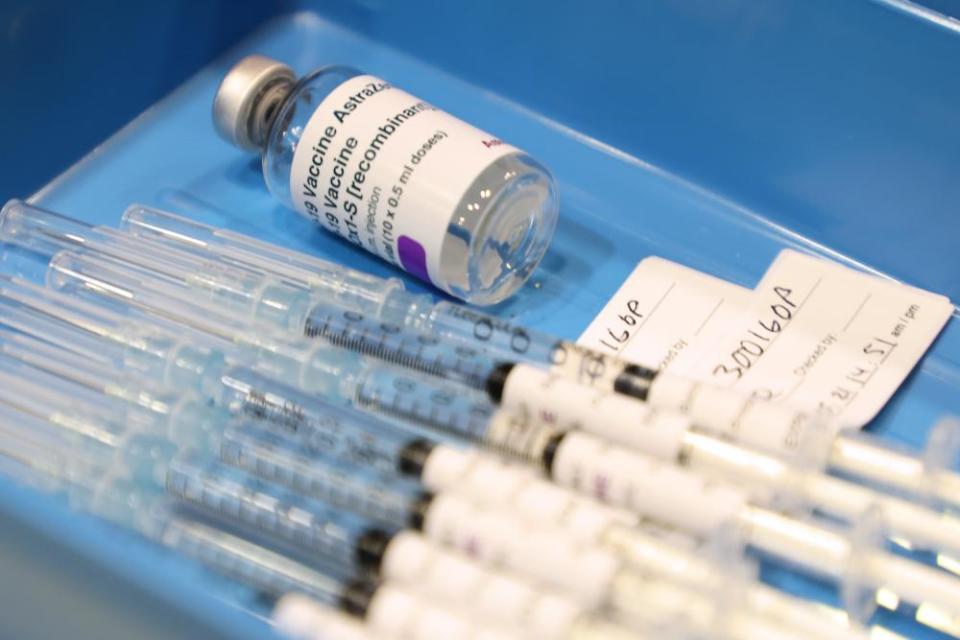Thousands of AstraZeneca Covid vaccine doses going to waste despite near-record production

Almost 1,000 Covid vaccination providers are destroying expired AstraZeneca supplies, with the wastage of 31,833 doses reported despite Australian production of the vaccine continuing at near-record rates.
There are now fears more will be binned as rates of uptake wane due to increased vaccination choice and the federal health department stepping in to manage the overstock.
Data given to Guardian Australia shows a relatively low rate of wastage of AstraZeneca due to expiry so far, though there are fears of a looming glut of the vaccine as uptake shifts increasingly to Pfizer.
The federal health department data showed 969 sites, less than 10% of the total number of vaccine providers, reported having to waste expired AstraZeneca. About 822 of those sites said they destroyed less than five vials.
About 32,000 doses have been reported as expired by vaccine providers, a fraction of the 24m doses made available since the beginning of the rollout.
But the latest data also shows a huge volume of unused AstraZeneca in Australia, which has grown to more than 7m doses, as local production continues apace.
Domestic production allowed 2.5m doses to be released for use in July. That increased to 4m in August and 3.9m in September.
The use of AstraZeneca, however, has waned. There were 2m doses administered in September, down from 3m in August.
AstraZeneca has a shelf life of six months, according to the Therapeutic Goods Administration, meaning any wastage from the current stockpile is not likely to be imminent.
The health department is starting to take steps to avoid wastage of AstraZeneca. It recently wrote to GP clinics and pharmacies to advise them on how to manage their excess doses.
The advice included transferring surplus stock to local administration sites that have greater demand. The department said it was also “working with vaccination providers to assist with redirection of excess stock where practical,” a spokesperson said.
Stock is also being collected for donations to Pacific neighbours through the Department of Foreign Affairs and Trade.
Australia has so far donated about 3.7m doses to 12 countries in the Pacific.
But the government has been urged to do more.
The campaign group End Covid For All recently called on Australia to donate 20m extra vaccines to help lower-income countries combat Covid-19, using the Covax facility. It also called on the government to invest an extra $250m in Covax.
Writing for the Lowy Institute’s Interpreter earlier this month, Labor MP Josh Burns said spare locally made AstraZeneca vaccines should be given to Indonesia.
“Indonesia has a vacuum of need for vaccines that is predominantly being filled by China, and yet Australia happens to have millions of spare doses that could save thousands of Indonesian lives,” he wrote. “In these circumstances, it is in Australia’s interest to be confident and generous in the Indo-Pacific.”
“Australia’s first priority with vaccination aid was to support the Pacific. Yet the Pacific’s supply is now guaranteed, and Australia still has surplus doses.”
The latest data shows a recent drop-off in the number of AstraZeneca doses set aside for donations to the Pacific, despite the flagging domestic demand.
Reports from the vaccine operations centre show the volume of doses made available for distribution to the Pacific fell to just 26,500 last week, down from 308,000 and 200,000 in the two weeks prior, and weekly totals of 500,000 through much of September.

 Yahoo Finance
Yahoo Finance 